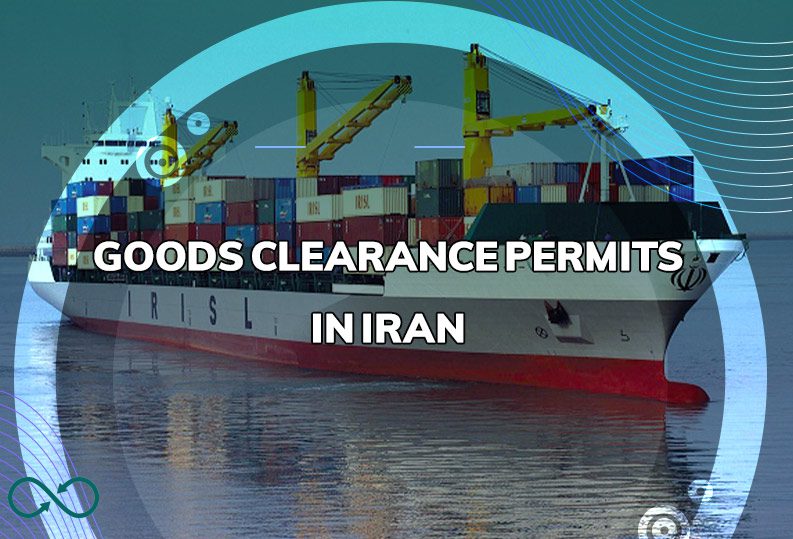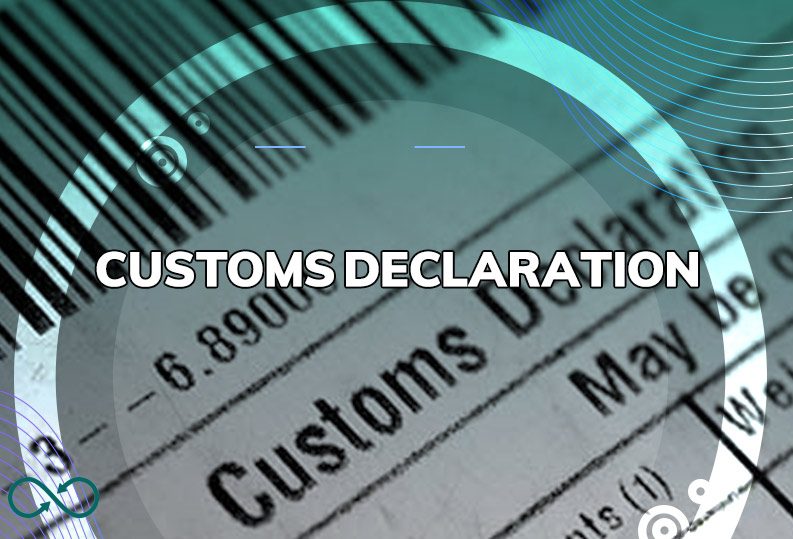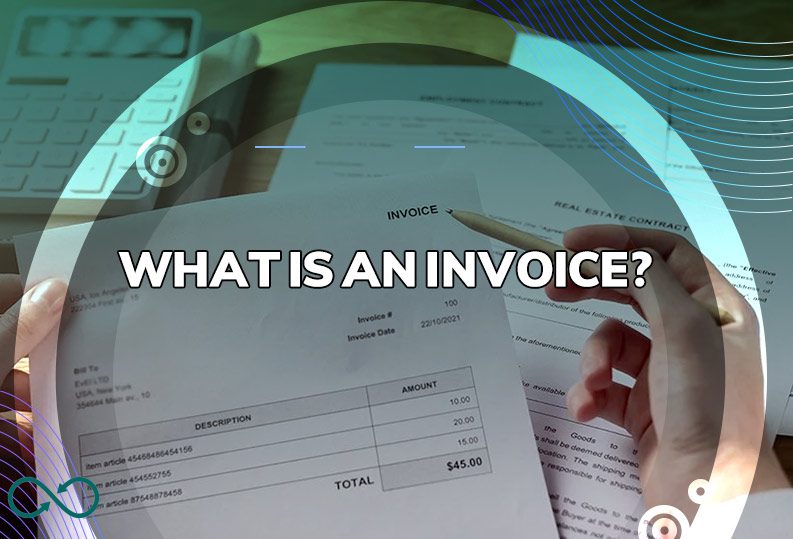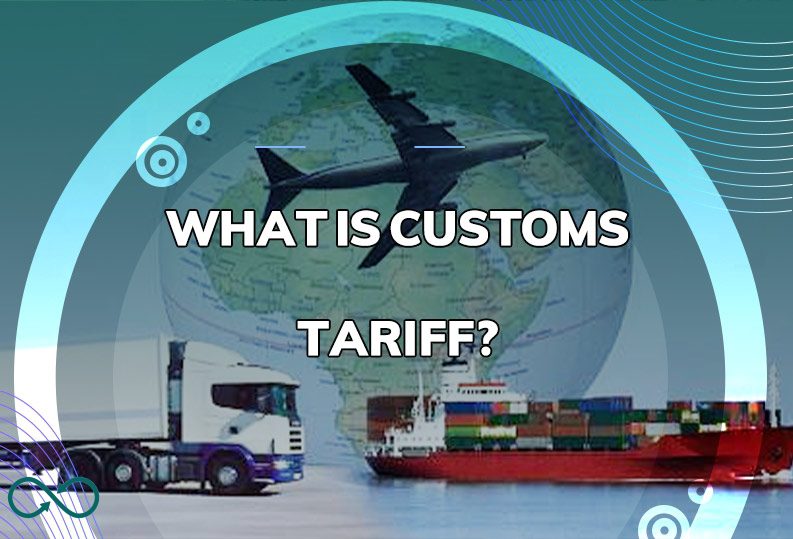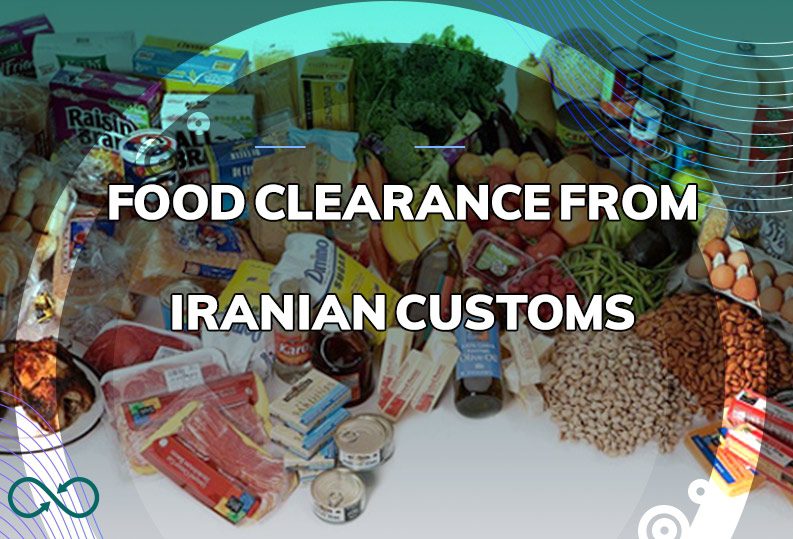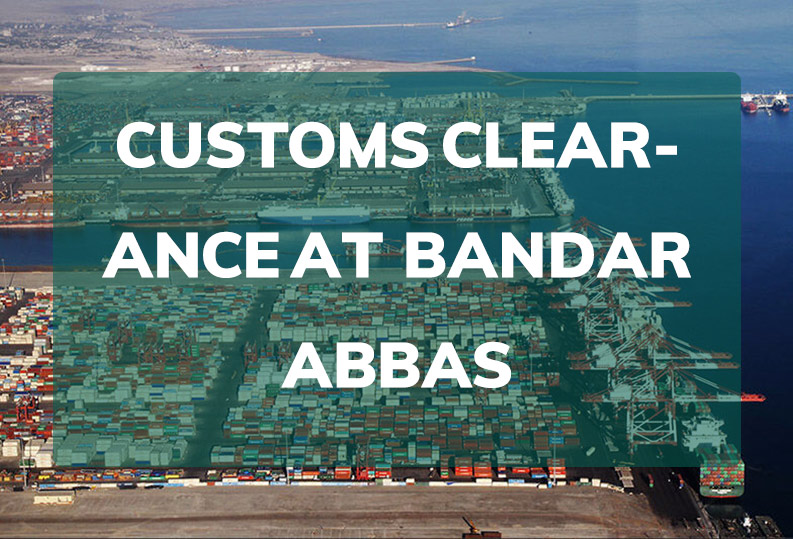For traders and businesses engaged in customs clearance, it is necessary to obtain clearance permits and it must be done for the legal import or export of goods. Obtaining various mandatory licenses is an important step to ensure the legality of sending or receiving goods.
Clearance of goods includes the official registration of imported or exported goods at the customs along with the payment of taxes and related costs. All items that enter or leave a country must go through this process and go through the necessary steps to obtain clearance permits.
Clearance fees depend on the nature of the goods and the documents required. Successful clearance requires the preliminary arrangement of relevant customs clearances such as invoices, bills of lading and import/export permits. In addition, clearance costs include taxes and customs duties, which are usually determined by factors such as the type of goods, country of origin, and quantity.
However, the task of collecting and organizing the documents required for the clearance process can often be complex, leading to confusion among many entrepreneurs.
As a result, the efficiency of expediting goods clearance largely depends on one’s familiarity with the various categories of permits required and the procedural complexities involved in securing them. In this way, choosing the services of a reputable clearance company is of great value.
By doing so, traders can significantly increase their prospects for a seamless clearance process, thereby avoiding potential financial and legal complications.
Tejarat Joyan Trading Company provides valuable assistance to speed up and facilitate the clearance of goods. Their support includes expert guidance and customs services that effectively streamline the process.
Types of permits required for customs clearance in Iran
The process of obtaining clearance permits, as mandated by relevant organizations and institutions, can often be a time-consuming endeavor. In many cases, this can inadvertently lead to the delay or even temporary stoppage of the goods in the customs area.
However, it is undeniable that presenting these licenses to the relevant authorities is of great importance and serves as a proof of the legality of one’s business undertakings. Given that these licenses are intricately related to regulatory and specialty issues, their acquisition warrants serious care and comprehensive understanding.
In pursuit of speeding up customs clearance, it is necessary to provide a set of customs clearance permits. Unfortunately, cases of detention of goods in customs are mainly caused by the long process of issuing necessary permits, which is beyond the scope of customs operations and its efficiency.
Recent years have seen a fundamental change through the creation of a comprehensive customs framework. This paradigm shift has been effective in strengthening the expediency and ease of doing business transactions. Notably, the introduction of electronic platforms for submitting documents and obtaining permits has brought significant cost-cutting benefits.
It is important to note that the ongoing digitization of clearance protocols has inevitably led to more scrutiny and increased inspection procedures. In this perspective, the clearance of any goods is necessarily subject to the provision of necessary clearance permits, which is the responsibility of both the owners of the goods and the importers.
As specified in the customs regulations, you as a goods owner or a customs broker with commercial credit will be responsible for providing the necessary permits to the relevant authorities. This procedural adherence serves as a platform for seamless progression through remaining customs formalities and obligations.
In navigating the prospect of obtaining essential goods clearance permits, one is encouraged to carefully follow established procedures, familiarize oneself with permit procedures, and understand the variety of permit categories. By doing so, the prospects of getting your goods through customs quickly are greatly enhanced.
Procedures for obtaining goods clearance permits in Iran
Before starting your journey to obtain the necessary permits, it is essential that a thorough investigation of your permitted or prohibited goods be carried out. This vital inquiry can be done effortlessly using the product code provided on Jame Tejarat’s website at www.Ntsw.ir. This step serves as an essential step to ensure the legitimacy of your business endeavors.
According to the directives of the Organization of Industry, Mining and Trade, the classification of commodity tariff codes is classified into four separate priorities, each of which requires your careful attention:
1- This is related to basic goods that are supported by the government.
2- In this category, goods are excluded from the allocation of government currency. These items can only be imported into the country through foreign exchange or remittance. The entry of such products depends on their absence in domestic production.
3- Clearance authorizations for goods subject to this classification are subject to the absence of domestic equivalents. Their import is allowed only through the use of the currency obtained from the export.
4- This priority includes goods whose entry is strictly prohibited according to the regulations of Samat Organization.
In order to improve your understanding of customs tariffs and to earn foreign exchange, the expertise of the experts of Tejarat Joyan Trading Company is at your disposal. Their guidance is invaluable in navigating these complex aspects.
After carefully considering your opinion regarding the prohibition of the product and its status, the next necessary step is to officially register your product order in the comprehensive trading system. This action is for the official introduction of your goods to the customs arena and to facilitate the next stages of the customs clearance process.
Registration of goods order
An essential prerequisite for securing goods clearance permits is an accurate record of goods orders. This necessary step, which is carried out after confirmation of the absence of prohibition, is facilitated through the use of the goods invoice in the comprehensive trade system.
In this framework, the vital details of the goods should be entered into the system diligently. These include key aspects such as the purchase value of the product, the corresponding quantity and its weight. After this careful input, the data is subjected to expert review. This ensures the accuracy and completeness of the information provided.
By successfully entering the details of the tariff of the goods in the designated platform, the required licenses of the Ministry of Industries, including areas such as agricultural jihad, health, etc., will be activated. It is your duty to initiate the process of obtaining these necessary permits.
As another measure, a thorough evaluation of the registered information is done along with the verification of the granted permissions. This detailed evaluation culminates in the issuance of a final approval and ensures that there are no complications or issues that could hinder the progress of the clearance process.
By following these carefully coordinated steps, you are ready to obtain the necessary permits with the assurance of procedural accuracy and compliance.
Issuance of license number
As you learn the intricacies of customs clearance prerequisites, it’s important to know that progress leads to an important milestone: obtaining approval from qualified professionals. This indicates the transition to the stage of payment of fees and the subsequent issuance of a license number.
The process of calculating customs fees has subtle intricacies that emphasize the wisdom of seeking commercial advice from a top clearance company. Their seasoning guidance can demystify this complex calculation and ensure accuracy and compliance.
After successful fee remittance, an important milestone is reached – you will be assigned an 8-digit license number. This numeric ID serves as an indication of your compliance and authorization in the customs landscape.
Management of foreign exchange operations
As explained earlier, tracking clearance requires a series of careful steps. The basic stage includes the registration of the customs declaration, which is completed by preparing the required documents and obtaining the required permits. These collected documents subsequently make their way to the relevant bank, a process that proves the origins of the currency involved.
At this stage, the bank registers a statistical certificate, an action conditional on the specific nature of the foreign exchange operations being carried out. This certificate, which is a manifestation of procedural compliance, is subject to detailed review and final approval by the Central Bank, which is a sign of its legitimacy.
After establishing a currency transfer or issuing a letter of credit number, the declaration is prepared for registration and ends with the assignment of a unique identifier called “cottage number”.
At the point where the declared value customs credit is obtained, the next essentials are to obtain the 16-digit tracking code. This code plays a pivotal role as it acts as the key to unlock the authorization for the goods to leave the customs area.
In this complex coordination of procedures, the path to clearance is paved through a series of systematic milestones, each of which plays an integral role in ensuring the smooth and legal movement of goods across customs borders.
Permits required for successful customs clearance: a comprehensive overview
In the field of customs clearance requirements, some licenses have a more prominent role than others due to different clearance conditions and classification of licenses. It is highly recommended to engage a reputable customs clearance company for a comprehensive consultation to gain a broad understanding of these clearances.
Among the necessary permissions, we find a wide range of common permissions that we often encounter. These permits include compulsory standard permits, quarantine permits, Ministry of Road permits, health permits, guidance approvals, permits issued by the Center for Intellectual Development of Children and Adolescents, as well as permits approved by the Atomic Organization.
The following exploration addresses these pivotal licenses and illuminates their importance and complexities in the customs clearance landscape.
